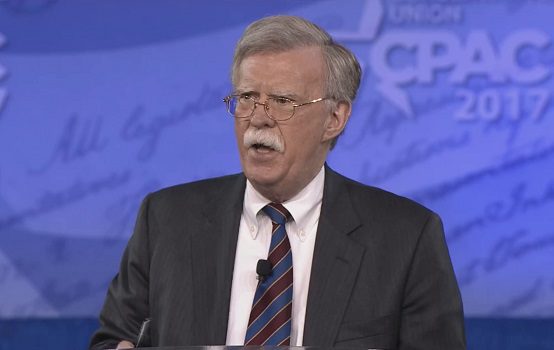Hawks Always Fail Upwards

The conclusion of Stephen Walt’s column on John Bolton is exactly right:
Don’t get me wrong: I’m not trying to “normalize” this appointment or suggest that it shouldn’t concern you. Rather, I’m suggesting that if you are worried about Bolton, you should ask yourself the following question: What sort of political system allows someone with his views to serve in high office, where he helps talk the country into a disastrous war, never expresses a moment’s regret for his errors, continues to advocate for more of the same for the next decade, and then gets a second chance to make the same mistakes again? [bold mine-DL]
So by all means worry. But the real problem isn’t Bolton — it’s a system that permits people like him to screw up and move up again and again.
There is a strong bias in our foreign policy debates in favor of “action,” no matter how stupid or destructive that action proves to be. That is one reason why reflexive supporters of an activist foreign policy will never have to face the consequences of the policies they support. Bolton has thrived as an advocate of hard-line policies precisely because he fills the assigned role of the fanatical warmonger, and there is always a demand for someone to fill that role. His fanaticism doesn’t discredit him, because it is eminently useful to his somewhat less fanatical colleagues. That is how he can hang around long enough until there is a president ignorant enough to think that he is qualified to be a top adviser.
Bolton will also have reliable supporters in the conservative movement that will make excuses for the inexcusable. National Review recently published an article by David French in defense of Bolton whose conclusion was that we should “give a hawk a chance.” Besides being evasive and dishonest about just how fanatical Bolton is, the article was an effort to pretend that Iraq war supporters should be given another chance to wreck U.S. foreign policy again. It may be true that Bolton’s views are “in the mainstream of conservative foreign-policy thought,” but that is an indictment of the so-called “mainstream” that is being represented. Bolton has been wrong about every major foreign policy issue of the last twenty years. If that doesn’t disqualify you from holding a high-ranking government position, what does?
Hawks have been given a chance to run our foreign policy every day for decades on end, and they have failed numerous times at exorbitant cost. Generic hawks don’t deserve a second chance after the last sixteen-plus years of failure and disaster, and fanatical hard-liners like Bolton never deserved a first chance. French asserts that Bolton is “not extreme,” but that raises the obvious question: compared to what?
Bolton has publicly, repeatedly urged the U.S. government to launch illegal preventive wars against Iran and North Korea, and that just scratches the surface of his fanaticism. That strikes me as rather extreme, and that is why so many people are disturbed by the Bolton appointment. If he isn’t “extreme” even by contemporary movement conservative standards, who is? How psychopathic would one need to be to be considered extreme in French’s eyes? If movement conservatives can’t see why Bolton is an unacceptable and outrageous choice for National Security Advisor, they are so far gone that there is nothing to be done for them and no point in listening to anything they have to say.